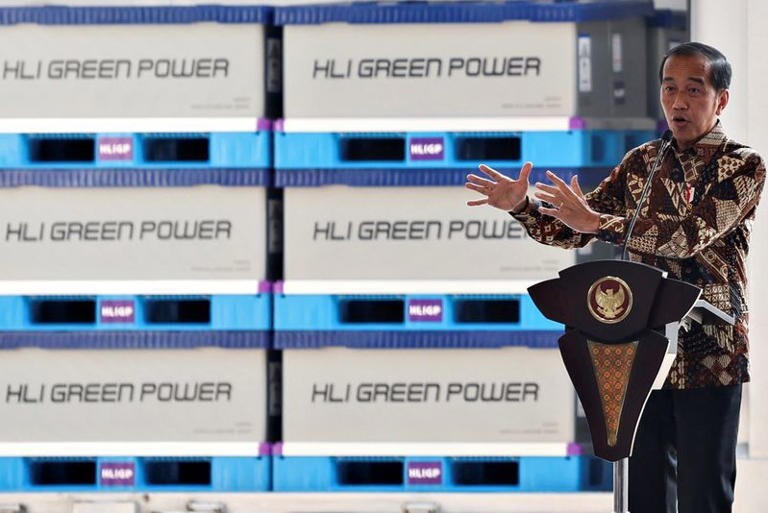On July 3, 2024, Indonesia inaugurated Southeast Asia’s first electric vehicle battery manufacturing plant, marking a milestone for the region’s automotive industry. The plant is home to the world’s largest nickel reserves and the sixth-largest bauxite producer. Located in Karawang, West Java province, the plant was owned by HLI Green Power and was inaugurated on July 3, 2024.
{alcircleadd}
This groundbreaking initiative is a joint venture between Indonesia Battery Corporation, South Korean automaker Hyundai and leading battery manufacturer LG Energy Solution. The move marks Indonesia’s strategic leap to the forefront of electric vehicle technology, leveraging its abundant nickel resources to accelerate the transition to green energy.
At the ceremony, Indonesian President Joko Widodo said: “This is the first and largest electric vehicle battery cell factory in Southeast Asia. I am confident that we can compete with other countries with this.”
With vast reserves of nickel, bauxite and copper and a well-developed smelting and precursor industry, Indonesia is well positioned to become the market leader in electric vehicles. A significant initial investment of $1 billion will produce 10 GWh of battery cells, enough to power 150,000 electric vehicles. Production is expected to double to 20 GWh in the future.
In the announcement, Coordinating Minister for Maritime Affairs and Investment Luhut Binsar Pandjaitan highlighted Indonesia’s readiness to play a leading role in the global electric vehicle supply chain. This commitment is not just about Indonesia, but also about a global ecosystem that includes and values the contribution of international players, all working towards the common goal of reducing carbon emissions and improving air quality and quality of life around the world.
Indonesia imposes trade restrictions on bauxite and nickel. In 2020, the country banned nickel exports and in 2023, it banned bauxite exports. Indonesia had previously planned to impose a ban on copper concentrate exports from June 1. However, the ban will now be postponed until December 31, 2024.



_0_0.png)